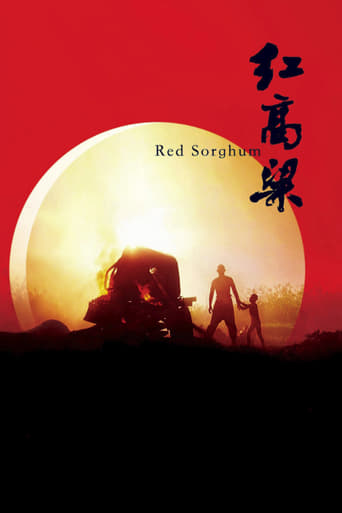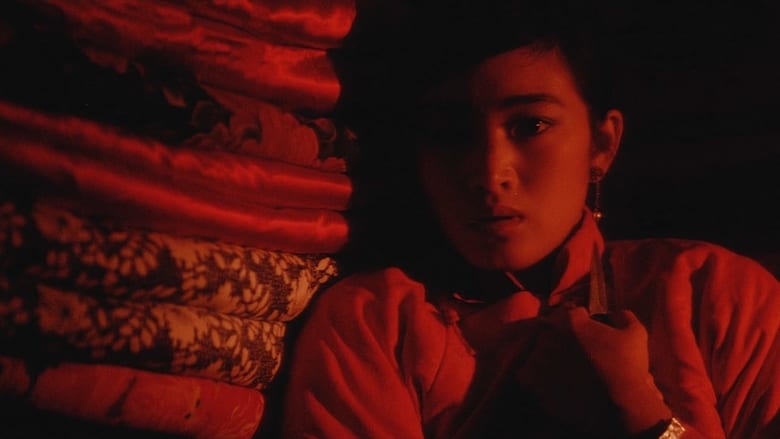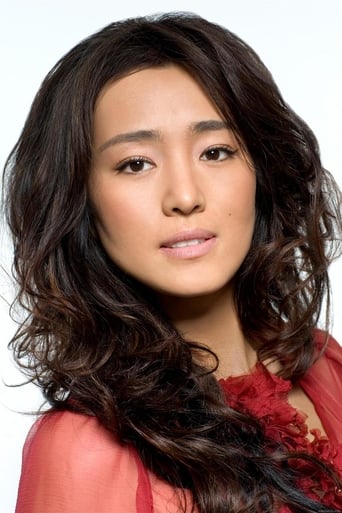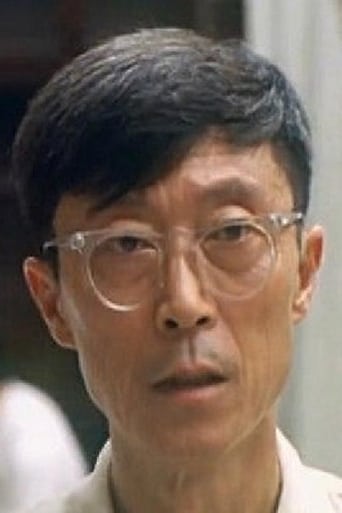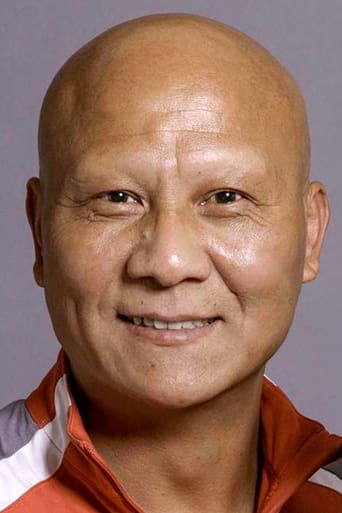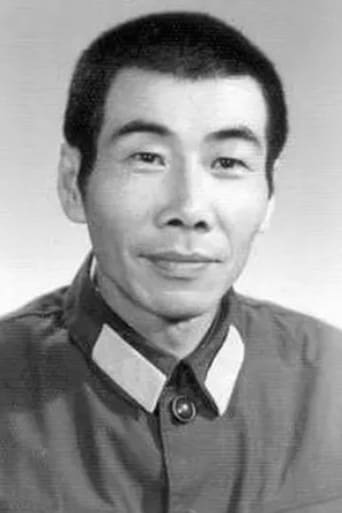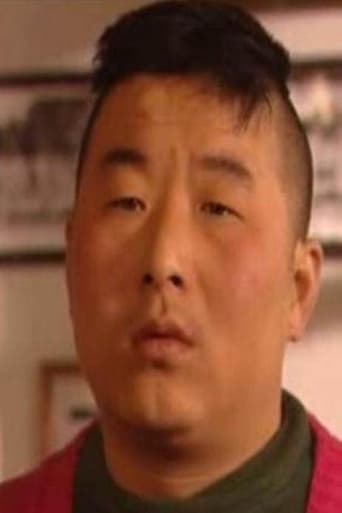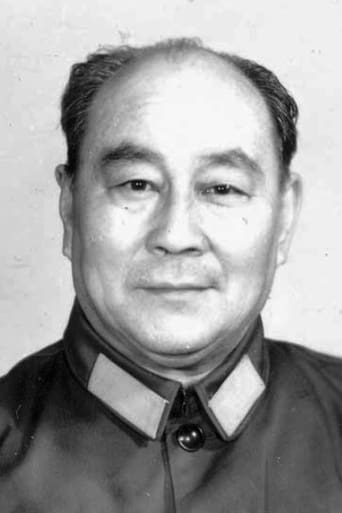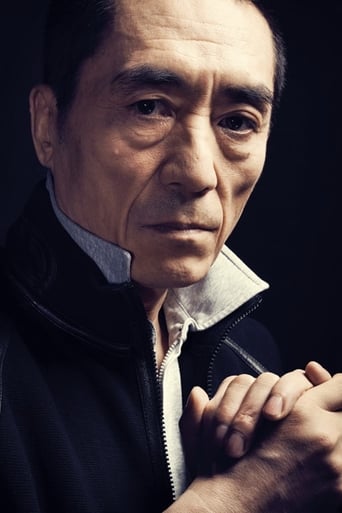An old leper who owned a remote sorghum winery dies. Jiu'er, the wife bought by the leper, and her lover, identified only as "my Grandpa" by the narrator, take over the winery and set up an idealized quasi-matriarchal community headed by Jiu'er. When the Japanese invaders subject the area to their rule and cut down the sorghum to make way for a road, the community rises up and resists as the sorghum grows anew.


Similar titles

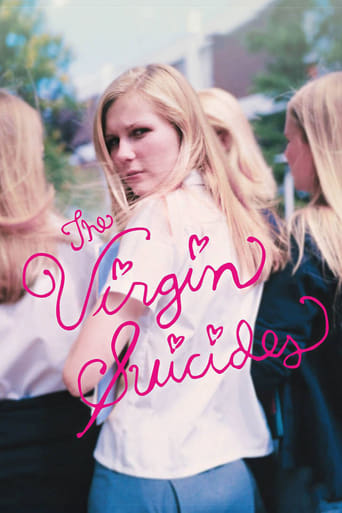
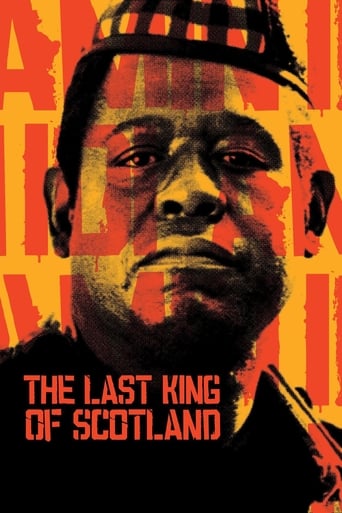
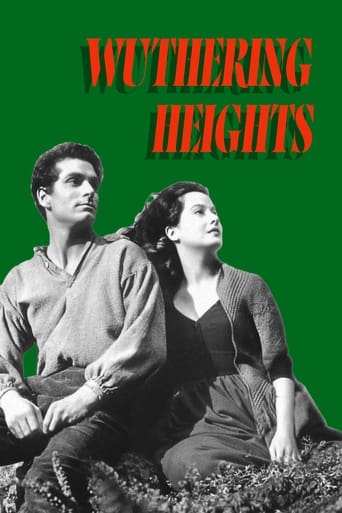
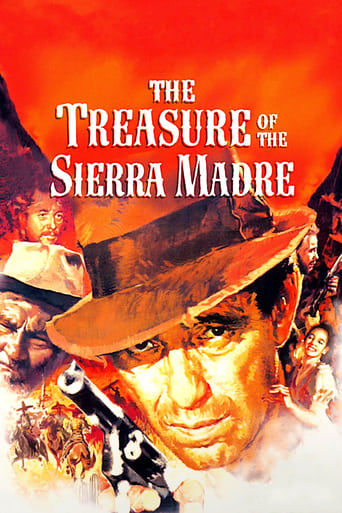
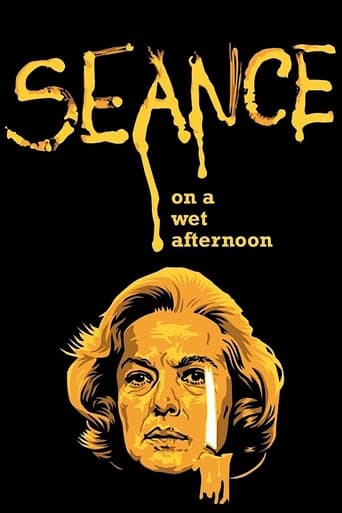
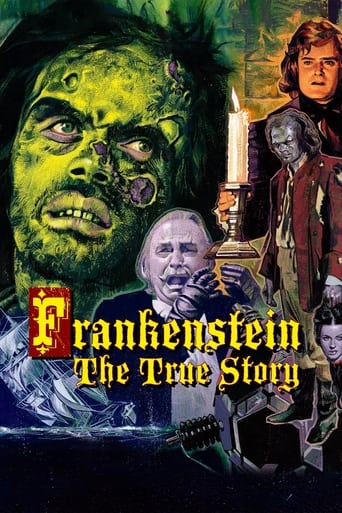
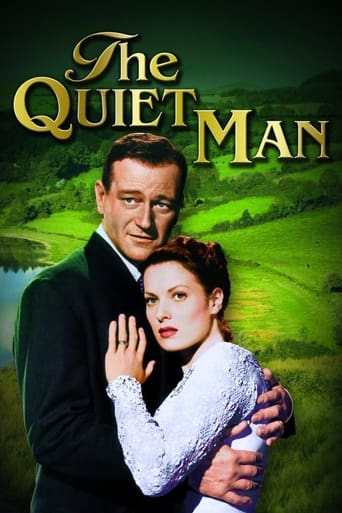
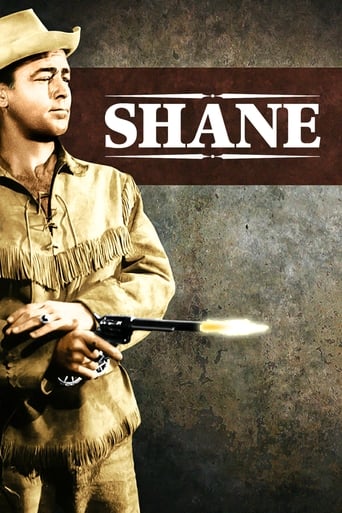
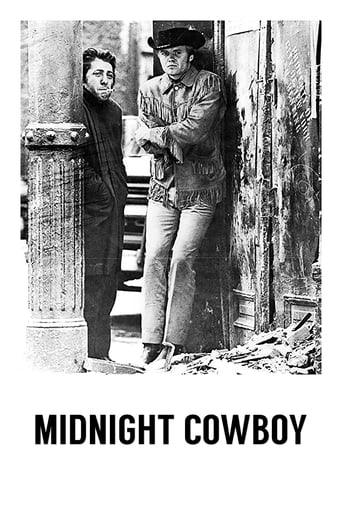
Reviews
According to other reviewers "Red Sorghum" is a cinematic wonder, a masterpiece, exquisite and many similar gushing adjectives. I wish I could agree but I cannot. Apparently this movie was based on a famous, prize winning novel. I have no idea if that novel has a point but this movie does not. The movie opens to a bride being carried in a sedan chair to the site of her arranged marriage. The groom must have been born under a bad sign, for apparently not only has he a big head but also leprosy. To cap it off he is murdered before we even get to see him, so that at least was a saving on casting. For reasons that are not clear the girl has with her a pair of scissors. Maybe she was going to adjust her hem on the way but who knows. The sedan chair carriers burst lustily into voice with a song reminiscent of "Bold Sir Robin" in Monty Python and the Holy Grail". It was actually pretty funny and I thought maybe the movie would reveal itself to be a laugh out loud comedy. But regrettably not, any humour is simply because each scene is more ridiculous and illogical than the last. This movie could have been a love story. But it wasn't. It could have been a character story. But it wasn't - the characters are all cartoons of people I could not care less about. It could have been a drama. But it wasn't, the only "drama" is contrived. It could have been a history lesson. But it wasn't, we get a one line reference to communism and a random and out of context cameo appearance by the Japanese Imperial Army. 1940's China is one of the richest, most complex, heart breaking stories in the History of the World, but do we see any of it? No dice. I could go on and dissect every scene for its stupidity and irrelevance, but I would exceed the 1000 word limit and test the reader's patience. According to other viewers Gong Li is the next best thing to Venus on Earth. Perhaps she is in other movies, but not in this one. She is portrayed as one of 500 million dirt poor peasants eking out a subsistence living out in the backblocks of China. To the credit of the film makers she is portrayed this way, not unattractive but certainly not attractive, either physically or as a person. Other reviewers praise the cinematography, possibly because it is the only redeeming feature of this movie. Sure, it has lots of sorghum leaves blowing in the wind, silhouettes of a totally out of place arch against the moon in all its phases, and lots of red tinting. But I'm sorry, pretty as it is, attempting to make a film "arty" by using all the usual suspects of "Arthouse Film 101" is a poor substitute for a real movie. If I can compare this movie to a meal it is heavy on garnish but has no meat and potatoes. It leaves you unsatisfied.
This is a very brief review of "Red Sorghum" (1987), "Ju Dou" (1990), "Raise the Red Lantern" (1991), "The Story of Qiu Ju" (1992) and "To Live" (1994), five films by Zhang Yimou. Each film stars actress Gong Li, each works as a companion-piece to the other, and each deals almost exclusively with the oppression of women within early 20th century China.Zhang's debut, "Red Sorghum" stars Gong Li as Young Nine, a peasant who is sold to a wealthy leper. Things only get worse for Nine, who must fend off a series of rapists, mean men and the Japanese Army itself, all the while running a successful winery. Throughout the film, Zhang uses boxes, deep reds and tight squares to amplify Nine's sexist surroundings. Indeed, the film opens with Nine literally forced into a box, a social reality which she spends the film attempting to break free of or even transform. For Zhang, China wasn't "disrupted" by the Japanese invasion, it was hell long before. Like most of Zhang's films during this period, "Sorghum" sketches the cultural and socioeconomic conditions which spurred China, with hopeful arms, toward Maoism.Zhang's next film, "Ju Dou", covers similar material. Here Gong Li plays Ju Dou, a woman sold to a violent oaf ("When I buy an animal I treat it as I wish!") who owns a fabric dying establishment. After her husband is crippled, Ju Dou forges a relationship with Yang Jinshan, a relative. When Ju Dou and Jinshan have a child together, the kid grows up into a mean brute. Like "Sorghum", "Ju Duo" is a tragedy obsessed with rich reds, boxes and patriarchal violence. Whilst its plot superficially echoes Zhang's own adulterous, then-scandalous affair with Gong Li, Zhang seems more interested in the way Ju Dou and Jinshan hide their illicit affair from other villagers. For Zhang, the duo's tacit submission to social mores merely validates the notion that their love is scandalous and so merely validates the symbolic power of the crippled patriarch, a power which Ju Dou's son must – as per his mother's very own actions – thereby respect and avenge.The arbitrary nature of power, and how this power is always "symbolic" and always unconsciously maintained (via ritual, personal belief and shared delusions), is itself the obsession of Zhang's "Raise the Red Lantern". Here Gong Li again plays a woman sold to a wealthy man. This man has several other wives, all of whom begin to violently fight one another in an attempt to win the patriarch's adoration. "Is it the fate of women to become concubines?" a character asks, pointing to the film's deft critique of feudal relations. Zhang's first masterpiece, "Lantern" is again obsessed with reds, boxes and sequestered women, though here Zhang replaces the voluptuous colours, camera work and widescreen Cinemascopes of his previous films with something more restrained. Because of this, Zhang's conveying of claustrophobia and oppression, of mind and spirit pushed to madness, feels all the more powerful.Next came Zhang's "The Story of Qiu Ju". A near masterpiece, it stars Gong Li as Qui Ju, a peasant farmer who embarks on a quest to avenge her husband, who's had his crotch kicked in by a village leader. More emasculated by this attack than her own husband, Qui Ju's quest takes her all across China, dealing with a Chinese bureaucracy which seems quite helpful, polite and even rational. And yet still this bureaucracy does not please Qiu Ju. It thinks in terms of commodities, monetary recompense and punishment, whilst Qiu Ju (like Zhang Yimou himself, whose previous films were banned, without explanation, by Chinese authorities) seems more interested in acquiring a "shuafa", a simple explanation and apology. By the film's end, both the "primitive justice" of rural China and the "civilized justice" of modern China are simultaneously mocked, praised and shown to be thoroughly incompatible. Zhang's first "neo-realist" film, "Qiu Ju" was shot with hidden cameras, amateur actors, and so is filled with subtle observations, cruel ironies and beautiful sketches of peasant life.One of Zhang's finest films, "To Live" followed. It stars Gong Li as Jiazhen, the wife of a wealthy man (Ge You) who is addicted to gambling. When this gambling results in the family losing its mansions, riches and status, Jiazhen and her husband are forced onto the streets. Ironically, this set-back saves the family; the Cultural Revolution arrives, and with China's shift to nascent communism, all wealthy land owners are demonised, attacked and killed.Unlike most films which tackle life under Mao's Great Leap Forward, "To Live" carefully juggles the good and bad of what was essentially a nation shirking off feudalism, monarchs, uniting and then trying, clumsily, to cook up some form of egalitarian society. This quest results in all manners of contradictions and socio-political paradoxes: community, solidarity and a simple life save our heroes, but their world is one of paranoia, danger, and in which everyone and everything is accused of being "reactionary". The film ends with Jiazhen's daughter dying, a death which is the result of both unchecked consumption (a doctor dies gobbling food) and communist "reorganisation" (all competent doctors have been killed/jailed for being counter-revolutionary). This jab at communism got the film banned in China (further highlighting the insecurity of the regime). Ironically, Maoism saw massive positive health care reformations, and saw an improvement in mortality rates which at times surpassed even then contemporary Britain and parts of America (life expectancy doubled from 32 years in the 1940s to 65 years in the 1970s). But such things don't concern Zhang. Spanning decades, "To Live" is mostly a broad account of life, love, loss and growth (the personal and political), all unfolding upon a canvas that is devastatingly cruel. Significantly, the film's title is both adjectival and a command; this is "what life is", but one must nevertheless "always push on". Gong Li and Ge You in particular are excellent.7.9/10 - See "Yellow Earth" (1984).
Reviewing Red Sorghum (1988) The movie Red Sorghum (1988) adapted from the novel of the same tile won Golden Bear Award at the 38th Berlin International Film Festival. The film won the international reputation for its director, Yimou Zhang; and also star the actress, Li Gong.This film is about the story of 'my grandmother and grandfather' in a rural village in Northern China. The story started from my grandmother who was on the way to her prearranged old husband's winery distillery factory. My grandmother, a young bride, was sent to get married with an owner of a wine distillery factory. After experiencing attack by a bandit, abduction, and mysterious death of her prearranged husband, my grandmother inherited that wine distillery. The story was ended by the death of my grandma during the period of Japanese invasion.Off-screen voices adopted as one important dramatic element is unique characteristic of this movie. The plot is structured into a completed story by the "narrator"- I , the grandson of the protagonists. At the beginning, audiences can hear the off-screen voices arose: "I'll talk about my grandpa and my grandpa" (Red Sorghum,1988). The narrator did not appear in the movie, which makes him in the neutral objective position; in the other hand, he is the descendant of story characters, which makes him becoming a subjective participation to some degree. "I" was telling the story; and also I was told about my family history. Off-screen narration appear 12 times in the movie. The relationships between characters and the progress of plot at turning point depends on 'my narration', for example, the relationship between my grandma, her prearranged leprosy husband and sedan carriage worker (my grandpa); the mysterious death of leprosy husband, the process of my grandma abduction, the left of Uncle Lohan, and the appearance of Japanese troops. The integration of real family history and unreal story completely depends on my off-screen narrations, which helps the connection of past with present, the real with the unreal. The film narrative approach ultimately generates historical distant effects in time and space.Cinematographic style is another prominent characteristic of the film. The director stylized the film with intense and rich red color. The screen is completely occupied by bright red color. At the beginning, a red scarf is filled with the whole screen; under the red scarf is my grandma's brighten young face with red makeup; the red sorghum stalk is glittered with the flash sunlight in the fields; the red sorghum wine liking rains is prayed around; the naked body is completely full of blood; and the world become the totally red after the mysterious total solar eclipse. At the end of the film, the flowing black red sorghum emphasized on the screen, which generates a brilliant and strong visual effect. This is not a realistic representation of time and space; it is the externalization of human innate desire for natural life and validity. Regardless of the plot, the extension of the red force gives audiences a pure emotional experience that is filled with wild and heroic.Unlike other Chinese films of the same period, Red Sorghum is not a typical realism film. The director did neither tell a legend of China's farmers nor seek for " the national cultural root" (Ni, 2002). The film only wants to praise 'life, endless vitality, freedom, life expansion and stretch' (Ni, 2002).The sun is regarded as the origin of life. The brilliant red filled with the screen represents the mythology of "worship of the Sun" (Ni, 2002). Covered with a mysterious color, the director explores the significance of freedom and the nature of life, which goes beyond political ideology, social structure, and cultural differences. The themes going through the film are about the vitality and the freedom. The film expresses the desire for a liberated, plain and undistorted state. This is not the world what has been understood by people now; it is a world that concerns for the life rights of human being instead (Ni, 2002). Because the praise for vigorous vitality and freedom is an universal idea of human regardless of language and culture, this film won the international honors.Overall, the high artistic achievement in cinematography and the uniqueness in plot structure make this film becoming one representative works of China's fifth generation filmmakers. Audiences can read the reconsideration for the nature of life, the future world as well as the destiny of mankind in that world known for us.References Ni, Z (2002). Memoirs from the Beijing Film Academy: The Genesis of China's Fifth Generation. translated by Chris Berry. Durham, NC: Duke University Press.Red Sorghum (1988) Yimou Zhang
There is a strength in the simplicity of the film's story, in the almost fairy-tale quality of the images and the shocking suddenness of its violence that Hollywood, in its sophistication, has lost. In Red Sorghum a Chinese man recounts a love story from his grand parents' era that was blighted by the invasion of Japanese forces.Director Zhang Yimou's strong, colourful debut swiftly propelled him into the pantheon of world cinema; Red Sorghum is a story of epic proportions, boldly photographed, with a full spectrum of emotional involvement and an underlying tribute to Chinese resilience. Upon its release, Red Sorghum garnered international acclaim, most notably winning the coveted Golden Bear at the 1988 Berlin International Film Festival.
